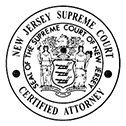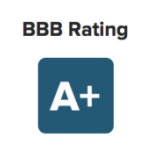Restraining Order Violation at the Union County Superior Court, Elizabeth NJ
If someone fails to comply with a condition to a restraining order, they may be charged with criminal contempt. This is also referred to as a restraining order violation. This offense arises out of N.J.S.A. 2C:29-9 and exposes an individual to a potential jail term of up to 18 months if they are found guilty. With potential consequences like these, it is always in the best interests of the accused to obtain experienced representation like the seasoned former prosecutors at our firm. Here at the Law Offices of Jonathan F. Marshall, our attorneys have over 100 years of experience defending clients charged with restraining order violations and contempt. You can reach an attorney in our Union Township Office immediately for a free consultation by calling 908-272-1700.
What Constitutes A Contempt Violation Under N.J.S.A. 2C:29-2?
An individual may be charged with a restraining order violation where there is probable cause to believe that a contempt has been committed. The following are examples of how someone can violate a temporary restraining order (“TRO”) or final restraining order (“FRO”):
- Failure to obey a restriction on contact contained in a temporary/final restraining order;
- Failure to comply with a condition in a restraining order, for example, condition on visitation, support, etc.; or
- Commission of a criminal or disorderly persons violation against a protected individual.
Arrest is mandatory if the police find that probable cause exist to believe that a contempt violation occurred. If probable cause is lacking, the police are to advise the “victim” as to his/her right to sign their own criminal complaint at the Family Part at the Elizabeth Superior Court.
Grading of A Contempt Offense. It is either a disorderly persons offense or fourth degree crime to violate a restraining order, depending on the underlying facts of the contempt. When the conduct involves the commission of harassment, criminal mischief or another disorderly persons offense, the violation is a fourth degree crime.
What Is The Standard Of Proof In Determining Whether A Violation Has Occurred?
While the standard of proof for issuance of a restraining order is the civil standard, a preponderance of the evidence (e.g. at least 51% that it occurred), the criminal standard applies to a violation. The reason for the difference stems from the fact that a restraining order is a civil order whereas a violation is a criminal offense. Accordingly, an individual may only be found guilty of a restraining order violation if it is established beyond reasonable doubt.
Penalties for Violating a Restraining Order
For a fourth degree content violation, the maximum fine is $10,000 and the state prison term is up to 18 months. A disorderly persons offense for contempt can result in a fine of up to $1,000 and 6 months in the County Jail. In addition, where it is an individual’s second or subsequent disorderly persons contempt violation, there is a mandatory minimum sentence that must be imposed of no less than 30 days. What this means is that if someone already has a contempt conviction, they will have to serve at least 30 days in jail if they are convicted of a subsequent offense.
Elizabeth NJ Contempt/Restraining Order Violation Defense Attorney
A violation of a restraining order, which is also referred to as a contempt, is handled in the Family Division of the Union County Superior Court in Elizabeth. Cases are assigned to one of eight (8) judges sitting in this part with Honorable Lisa F. Chrystal, serving as the presiding judge. If you are the defendant to a restraining order or have been charged with contempt, our attorneys are prepared to fight for you. The lawyers at the Law Offices of Jonathan F. Marshall are former prosecutors that make up a team with over a century of experience. To obtain a free consultation from a defense attorney on our staff, call us at 908-272-1700.












